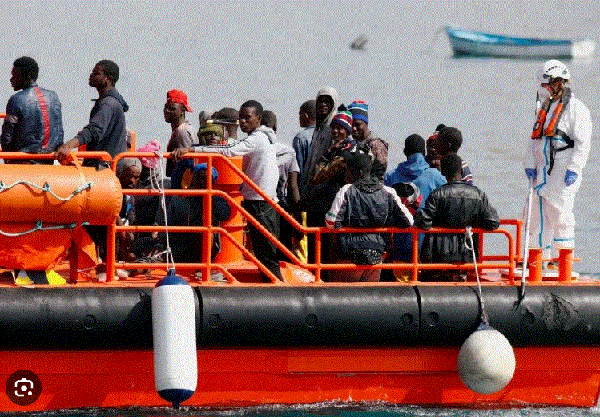Irregular immigration: In Flots!

Over the past ten days, more than 1,000 people – including more than 900 in the last 48 hours – driven by their dream of reaching Europe, have been intercepted by the French Navy. This is a critical situation which shows that the tightening of controls has not made it possible to stem the wave of departures. The migratory corridors are always open like air currents.
Is there a way to contain these departures of young people towards the Spanish coasts?
Yesterday, the patrol boat “Le Walo” intercepted two canoes off the coast of the Louga region, approximately 200 km from Dakar. According to the National Navy Communications Unit, 242 migrants were arrested. Then they were transported to its naval base. It is a succession of arrests noted in recent hours, which shows that all the strategies developed have not made it possible to reduce the persistence of the phenomenon.
Read the column: Migrations, Stop the Wave
On Sunday, 176 would-be irregular immigrators were arrested between Dakar and Saint-Louis. On August 25, 125 people were also arrested by the National Navy, which strengthened its surveillance system due to the resurgence of the phenomenon in recent months.
A few days ago, 168 individuals, stranded in a Spanish patrol boat in the Gulf of Nouadhibou, were repatriated to Dakar. Today, the situation seems to be degenerating with a massive departure observed in all immigration corridors.
Between Spain and Nicaragua, a part of the youth has decided to bet on adventure for a better future. At their own risk. This Monday, a record figure was undoubtedly reached: 550 migrants were rescued yesterday by the Spanish Gardia Civil in Spanish waters, according to the Spanish media.
Today, we must admit: it is a real migration crisis, even if the State has put in place the new strategy to try to stop the wave of irregular immigration. This year, it is giant: According to the count of the government of the Canary Islands, 2,692 people arrived in the Spanish archipelago for the month of August 2023 alone. That is more than double compared to the same month in 2022 (1,075 people). A “critical” increase according to NGOs who fear a complicated autumn season without the assistance of the State. According to the local Spanish newspaper La Voz de Tenerife, cited by Info migrants, the situation is even urgent: “NGOs working in the region warn that the situation is very worrying and that at present they cannot predict the « the scale of the crisis which will begin in September », we can read in the article.
By Ousmane SOW

